Culver City is now home to America’s sole romance-only bookstore: the Ripped Bodice

“We wanted a lot of light in the space,” says Bea Koch from one of the baroque, Victorian couches that form a makeshift living room in the center of the Ripped Bodice, America’s sole romance-only bookstore, which she owns with her sister Leah. “Romance is hidden a lot, and this store is not hiding anything.”
The high-ceilinged space is located behind an unapologetically pink storefront in downtown Culver City, and contains dozens of surprisingly specific subgenres of romance and erotica, curated and organized for its audience. Chicago natives Bea and Leah Koch, sisters who opened the shop on March 4, 2016, after raising more than $90,000 on Kickstarter, conceived of the Ripped Bodice as a safe, sex-positive, feminist space where fans of the genre (or the romance-curious) can browse and commune without fear of feeling judged — something they’ve encountered in general-interest bookstores.
The Kochs are not only devoted, voracious romance readers themselves, but astute observers and critics of its routine, often out-of-hand dismissal.
“No other genre has to defend itself as much as we do,” says Leah. At 24, she is the younger, and wears a sprig of small white flowers behind her ear. Bea, 27, in clear-framed glasses, pets Fitzwilliam Waffles, a one-eyed rescue dog of possibly Pomeranian stock lounging on the cushion between them. (Fitzwilliam, if you’ll recall, is Mr. Darcy’s first name.) “It extends beyond just what romance novelists are writing. It’s also about how they present themselves,” Bea says, “and how they’re seen in the larger literary world as this kind of side show.”
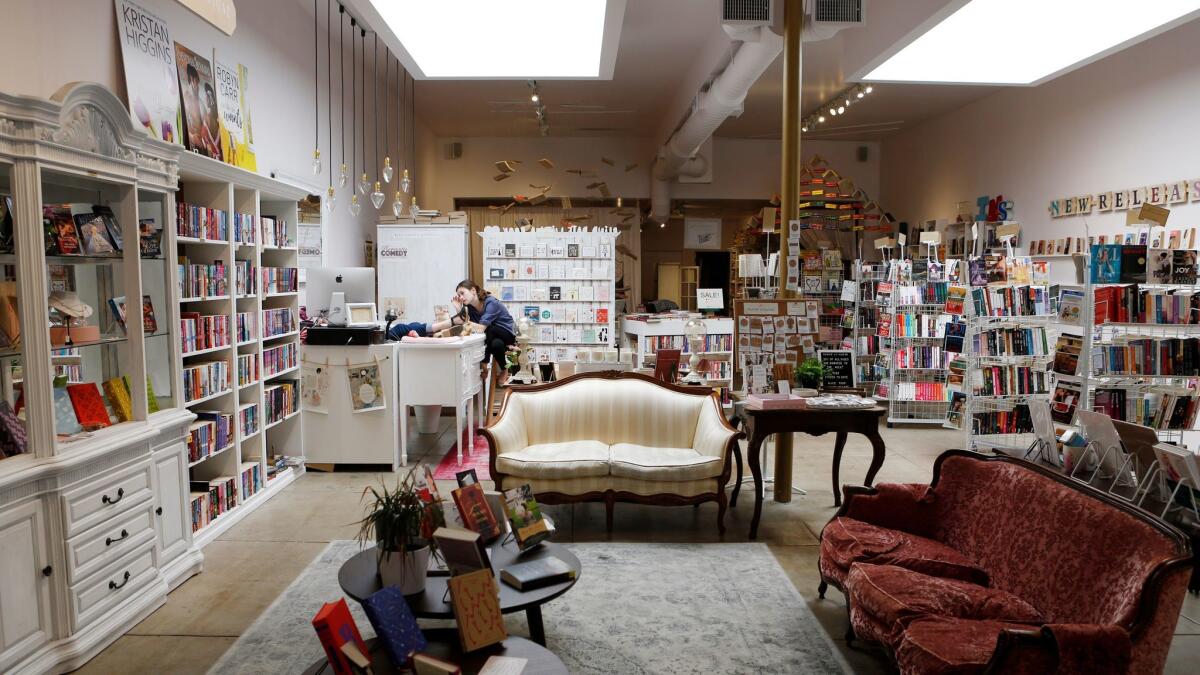
Not so at the Ripped Bodice, where romance is the main event. Historical romance, shelved chronologically by the era in which the book is set, includes Georgian, Regency and Gilded Age; contemporary houses cowboys, suspense and “bikers and tats”; there are sections for LGTBQ and romances in Spanish; a “romance adjacent” wall for books such as Sarah Waters’ “Tipping the Velvet” and Chimamanda Ngozi Adichie’s “We Should All
Be Feminists”; and in the back, erotica and paranormal romances. While vampires were popular at the apex of the Twilight franchise, says Bea, “after that moment we moved to shifters.” Shifters? Think werewolves but with a wider taxonomy. “There can be a werepanther, or a werebunny,” says Leah. “There’s a hedgehog one,” she adds with delight.
For customers with less specific proclivities — or newbies to the genre — both Bea and Leah are happy to offer guidance. Leah estimates that eight out of 10 customers leave with a title the sisters have personally recommended, and they encourage first-timers to stay within their comfort zone. “You need to read something that is like what you already like to read,” says Leah. “If you love history, it’s not going to be vampire romance for you.”
What they won’t recommend: a story without a happy ending, because, according to the definition established by the Romance Writers of America, that wouldn’t be a romance. (The other criteria being, of course, a central love story.) “If you call it a romance and then one of the people dies at the end, you are a lying liar who lies,” says Leah, and her sister laughs.
“Leah cuts to the chase,” Bea says. Leah is the more outspoken of the two, Bea’s replies more measured. When I ask what plans they have for the shop, Bea riffs on the possibility of curating “a mini Ripped Bodice” inside independent bookstores nationwide. Leah says simply, “World domination.”
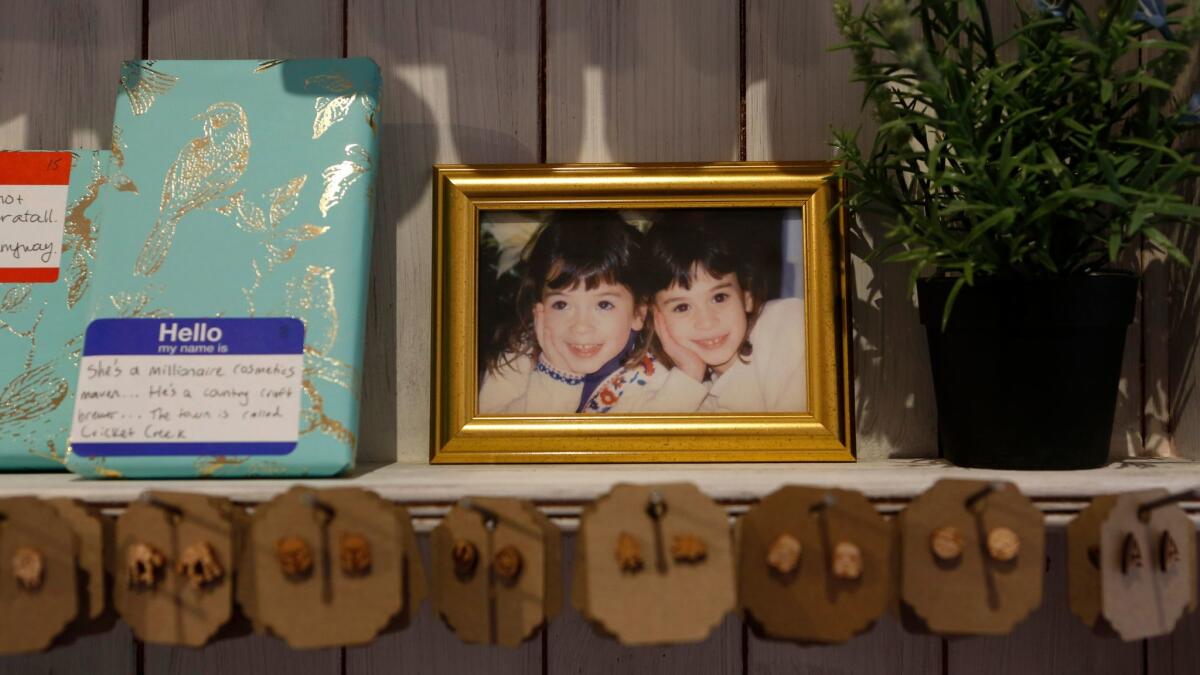
In addition to owning a business together, the sisters share a home nearby; framed pictures of themselves as children decorate the store walls. Both Kochs grew up devouring romance novels; Bea received her master’s at NYU with a thesis titled “Mending the Ripped Bodice.” The decision to open a romance bookstore came after Bea visited Leah at USC.
“Leah was driving me to the airport and we were talking about like, ‘Oh, what should we do with our lives?,” says Bea. They began to consider the idea of selling romance novels “because those are the only books we read,” says Leah, who describes the next moment as a “record scratch — we should only sell romance novels.” A quick Google search found only one bookstore of the kind — in Australia. “When you think of a good idea,” says Leah, and Bea jumped in to finish her thought: “You know.”
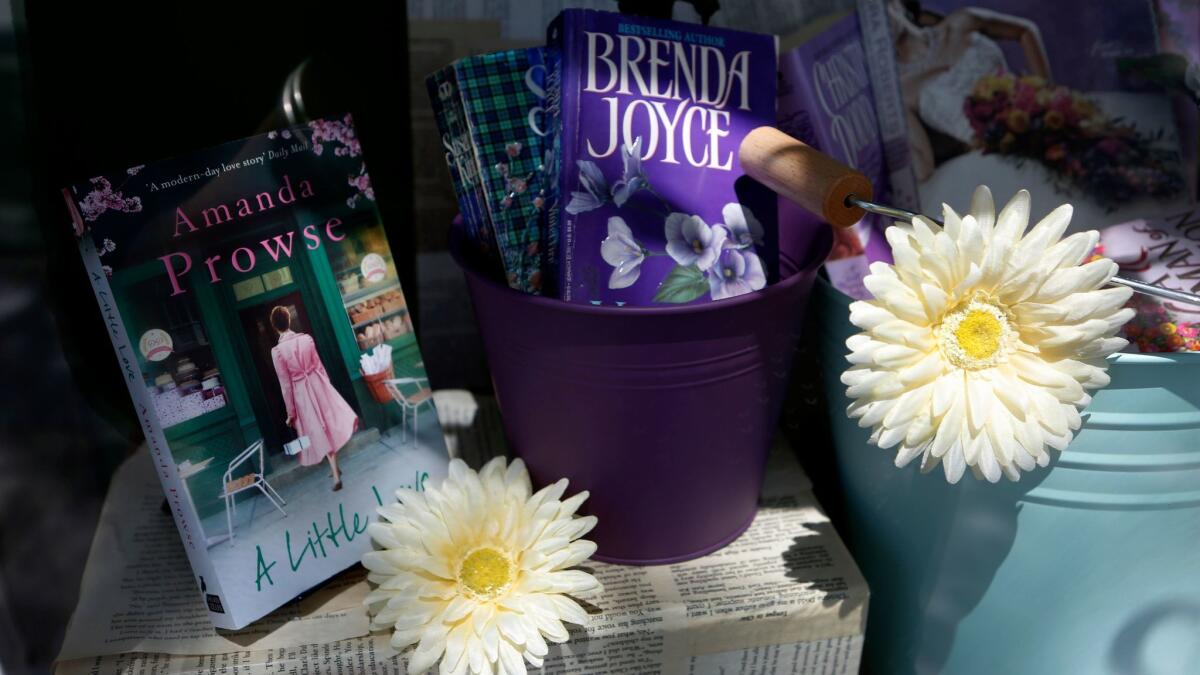
Romance, which includes erotica like the mega-selling “Fifty Shades” trilogy, accounted for 34% of the U.S. fiction market in 2015, according to Nielsen BookScan/PubTrack Digital. In 2013, BookStats estimated that romance earned $1.08 billion in sales. Romance “is a juggernaut of publishing. We keep the lights on at most major publishing houses,” says Leah. “That’s the general line — that romance is really what’s paying the big advances that [literary] fiction writers get,” Bea explains. “People are so wedded to this idea that it’s something to be made fun of,” she says, that they’ve missed a business opportunity.
The sisters are frustrated by criticism that romance creates unrealistic expectations. “This idea that romance readers are so bamboozled that they expect that they’ll fall in love with a duke is so offensive,” says Bea. Similarly, like any other literature, genre fiction can tackle more serious themes. “Abusive parents or alcoholic ex-husbands or miscarriages,” says Leah, “you’re going to see all of that because all of those people are deserving of love, and romance is about giving happy endings to people who are deserving of love.”
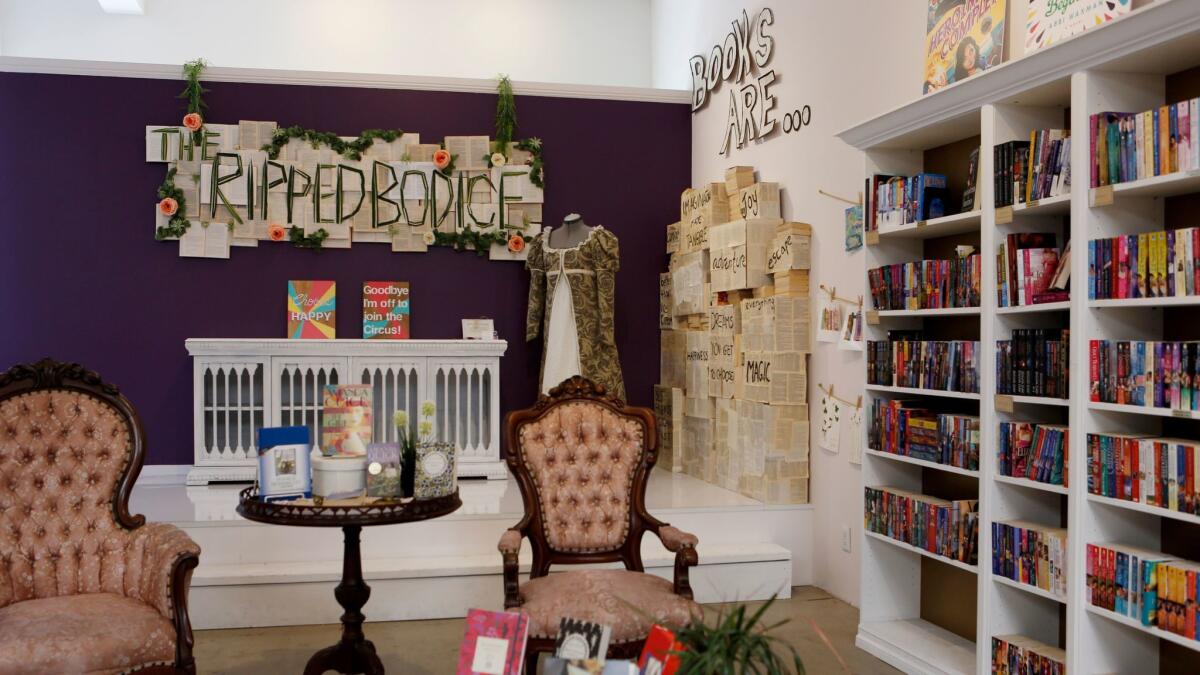
The Ripped Bodice hosts a monthly comedy show (Romantic Comedy) and book club, as well as author readings. The Kochs prioritize working with female-owned businesses: a tank top for sale proclaims “I am the heroine of my own story.” Because Bea and Leah were already a part of the market they tapped into, they created the kind of business they wished they had for themselves. Leah describes the store as unabashedly “catering to women.”
“I’ll start with the bathroom,” she says. “You’re always gonna find diapers, tampons, pads and hair ties.” The space has become a haven for local romance writers who “use [the store] like a coffee shop,” says Bea, setting up their laptops where they please. Rebekah Weatherspoon, author of “At Her Feet,” and Sarah Kuhn, author of “Heroine Complex,” are regulars. “If someone has already made the decision to buy Rebekah’s book,” says Leah, she then points her out; a customer visiting from Atlanta got the welcome surprise of a personal, one-on-one signing.
To judge from the extensive and thoughtfully curated shelves of the Ripped Bodice, it may seem as if there’s a romance novel for everyone, but although the sisters’ priority is to carry as diverse a selection as possible, the source material does have limitations.
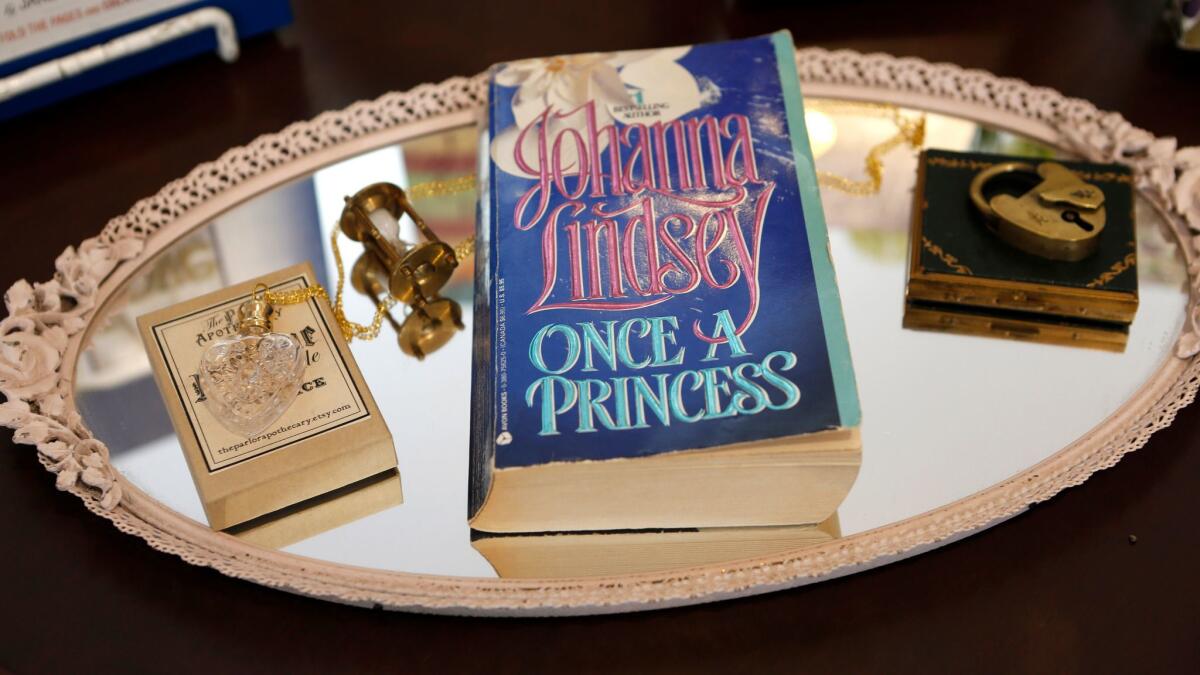
“The publishing industry is not representative of the world and they need to work harder to do that,” says Leah. “People who are not straight, white and Christian are not adequately represented in romance novels,” especially those being released by major publishing houses. Publishers, she ventures, haven’t had the “experience where a young Asian woman walks into our store and sees a cover with an Asian woman on it and freaks out.” The Kochs have witnessed readers finding themselves on the cover of a romance novel — for the first time — firsthand.
“It’s some variation of the question: Do you have a romance about someone like me?” says Leah. “Whether that is, I’m Jewish, or I’m in a wheelchair, or I’m black, or I’m Muslim, or I’m a lesbian, or I’m pansexual, or I’m transgendered or I’m whatever. A lot of times the answer is yes, but you only have one option.” Strides are being made, she says, but it’s slow. “I wish I had 10 options for you — but right now I only have one.”
I ask if, in addition to their hopes for greater inclusivity, they foresee any trends in the genre. Their answer solidifies the growing sense that, whether or not you’re a romance fan, it’s an interesting lens through which to consider the greater milieu.
“Protest romance,” says Leah.
“I’ve seen people talking about their investigative journalist projects on Twitter,” adds Bea. Leah nods in agreement. Her prediction for the next romantic heroes and heroines? “It’s gonna be like, the people from the national parks,” she says.
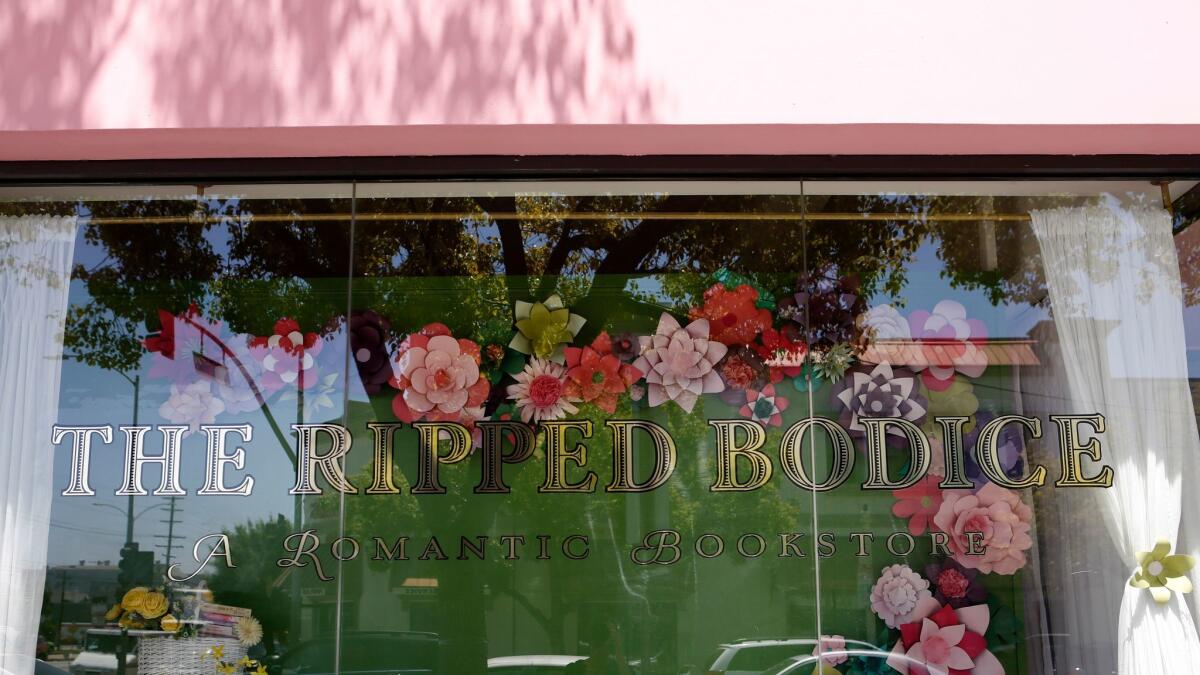
More to Read
Sign up for our Book Club newsletter
Get the latest news, events and more from the Los Angeles Times Book Club, and help us get L.A. reading and talking.
You may occasionally receive promotional content from the Los Angeles Times.






